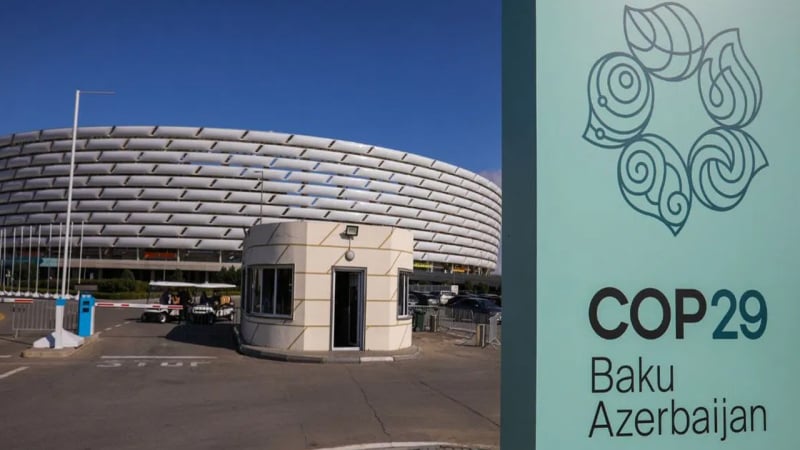A 12-day climate conference (COP29) is going on in Baku, the capital of Azerbaijan. Thousands of representatives from about 200 countries are participating in this conference which started from November 11. In this meeting, necessary efforts to deal with the climate crisis are being discussed. During this period, India has also moved forward with its plans to save the world from climate change.
India said at the COP29 meeting on Thursday that developed countries should commit to providing at least US $ 1.3 trillion per year to developing countries by 2030. India has said that the new climate finance package being negotiated cannot be made an ‘investment target’.
Demand from developed countries to fulfill their promise
Speaking on behalf of the League of Like-minded Developing Countries (LMDC) on climate finance at COP29, India stressed that developing countries should receive funding through concessional and debt relief to address a warming world. Needed India said, ‘A new climate finance package or a new Collective Quantitative Target (NCQG) should be a top priority for COP29 this year and should be in line with the emerging priorities of developing countries.’ At the same time, it should be free from restrictive conditions that hinder the development of developing countries.
2030 Plan on ‘Climate Finance’
Speaking on behalf of India at COP29, Naresh Pal Gangwar said, ‘Developed countries need to mobilize at least US$1.3 trillion per year for developing countries by 2030. “This support is vital as we head towards COP30 in Belém, Brazil, where all parties will outline their national-level plans and contributions to tackle the climate crisis.”
India has opposed converting the NCQG into an investment target, saying the Paris Agreement makes it clear that only developed countries will mobilize climate finance. In such a situation, it is unacceptable to include any new targets outside the mandate of the UN Climate Change Conference and its Paris Agreement. “We do not see any scope for renegotiation of the Paris Agreement and its provisions,” Gangwar said.
Are developed countries reneging on their promises to raise funds?
In fact, many developing countries including India argue that it is the responsibility of the developed countries to raise climate finance for them under the United Nations Climate Change Conference and the Paris Agreement, but now the developed countries are emphasizing on the ‘Global Investment Target’. , , Which will raise funds from various sources including the government, private comp.es and investors.
Are rich countries trying to take advantage of the crisis?
In this regard, climate activist Harjeet Singh says that turning climate finance into an ‘investment target’ is a betrayal of those who are facing crisis due to climate change. He said, ‘It is clear to all developing countries, including India, that they need to provide these funds through grants and non-loans, and not through investment schemes that allow rich countries to take advantage of this crisis. Gives, which is difficult. He has played a big role in making it. Anything less than this is double injustice.

